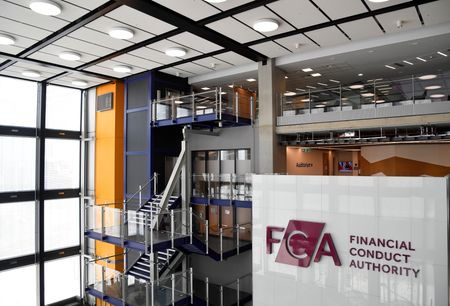By Kirstin Ridley
LONDON (Reuters) – British lawmakers said on Thursday that the UK markets watchdog should ditch already softened proposals to publicly name some companies under investigation if it cannot properly balance consumer benefits with the risks to firms and individuals.
The Financial Conduct Authority last year rowed back from plans designed to boost transparency and deter wrongdoing after lawmakers, lawyers and industry groups labelled them misjudged and harmful to London’s competitiveness.
In a report entitled “Naming and shaming: how not to regulate”, the House of Lords Financial Services Regulation Committee said it was unconvinced by the recast plans, urging the FCA to demonstrate they were proportionate and necessary – and to set out its errors in a “lessons learnt” document.
“If the FCA is unable to find an acceptable balance…between increasing transparency to help prevent consumer harm, and managing the potential risks to firms, individuals and market stability, it should not proceed with these proposed changes,” the report said.
Those that lambasted the proposals, first published last February, argued that announcing investigations before innocence or guilt was established risked dealing irreparable and unjustified damage to companies and the finance industry.
To defuse the backlash, the FCA in November recast the plans and opened a second consultation, which ends on February 17. Changes included plans to explicitly consider the potential impact on businesses and an increased period for companies to contest plans to publicise an investigation.
The row hinges in part on the FCA’s plan to apply a looser “public interest” test to naming corporate suspects, which critics say was ill-defined. Currently, companies under investigation are only named in “exceptional circumstances”.
But the FCA has yet to make a convincing case that the exceptional circumstances test is no longer sufficient, lawmakers said, as they urged it to publish guidance on how a public interest framework would work and called for a detailed cost/benefit analysis.
Concerns that announcing investigations early would damage Britain’s competitiveness and risk positioning it as an outlier were also warranted, they added.
The FCA, which has conceded it should have handled the initial consultation better, said it would consider the report carefully as it decides on its next steps.
(Reporting by Kirstin Ridley; Editing by Kirsten Donovan)









